If you have found a spelling error, please, notify us by selecting that text and pressing Ctrl+Enter.
Ping, Ping, Ping: A Report from the Remand Extension Hearing of the Defendants in the Penza “Terrorism” Case
Yegor Svokoroda traveled to Penza, where, over the course of three days, the Lenin District Court considered whether to extend the remand in police custody of the antifascists who, according to the FSB, were part of a “terrorist community” known as The Network.
FSB Senior Investigator Valery Tokarev blushes gradually: first the tip of his nose, then his ears, and finally the bald patch that covers half his head. He is arguing with a lawyer, insting on a closed hearing in order to ensure “investigatory privilege.” The lawyer objects.
“The case is at the evidence gathering stage. We have not finalized all the witnesses or the defendants. A number of parties to the crime have not been identified or are on the wanted list,” says Tokarev, his forehead covered with sweat.
This scene was repeated several times in Penza’s Lenin District Court, where, between March 13 and March 15, the arrest in police custody of five antifascists apprehended and charged with involvement in a “terrorist community” was extended. Time after time, Judge Svetlana Shubina closed the hearings to the public and the press.
Ordering that yet another of the accused be remanded in custody to the local remand prison until June 18, Judge Shubina time after time bases her ruling by referring to the particularly complicated nature of the case and the allegation that each of the young men was a member of a “stable, highly secretive criminal group,” and that “firearms and ammunition” were involved. Shubina notes investigators had to finish their numerous forensic examinations and interrogations, and finally indict Sagynbayev, Pchelintsev, Shakursky, Chernov, Zorin, Kuksov, Ivankin, and Kulkov.
Yegor Zorin, a fourth-year student at the Belinsky Pedagogical Institute, was the first person detained in the investigation of the “terrorist community.” The FSB has alleged its members planned, during the March 18 presidential election and this summer’s FIFA World Cup, to “agitate the masses in order to further destabilize the political situation in the country” by setting off bombs; when the H-hour came, they would lead an armed insurrection. Zorin was apprehended on October 17, 2018. There are unconfirmed reports he signed a confession, which was the basis of Criminal Case No. 11707560001000036, concerning organization of and involvement in a terrorist community, per Article 205.4 Parts 1 and 2 of the Russian Federal Criminal Code.
Zorin’s time in the remand prison was not extended. He was jailed there until December 18 and subsequently transferred to house arrest. The press service of the Lenin District Court told Mediazona, however, that after December 18, investigators had not petitioned the court to extend his arrest.
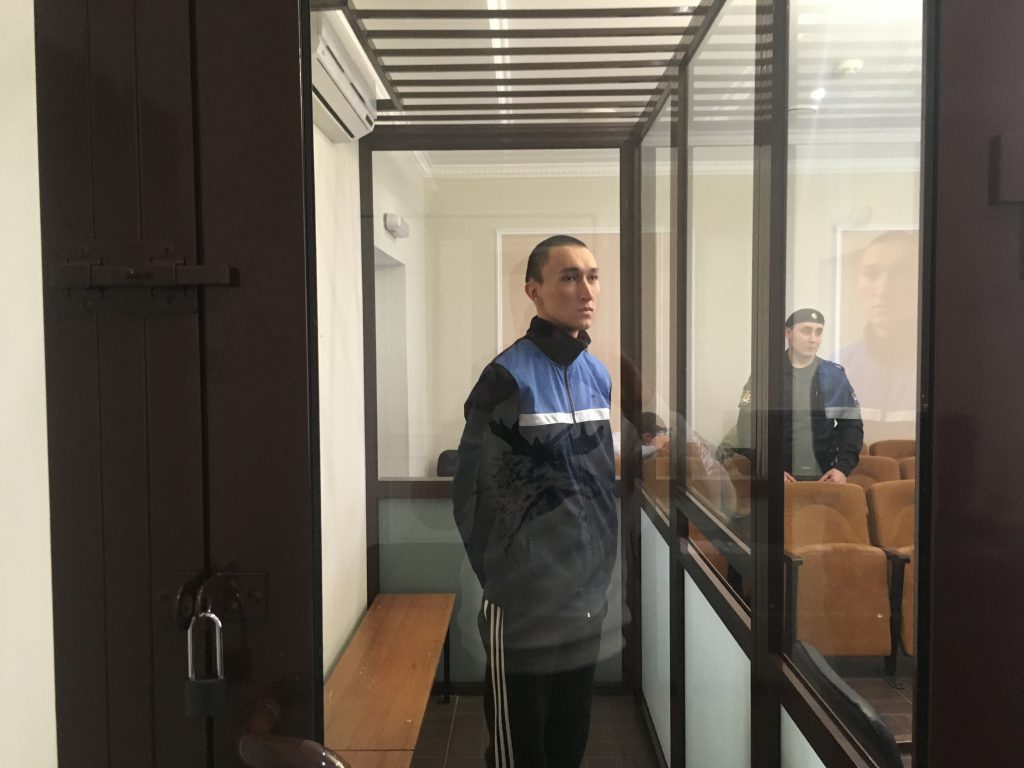
The next to be apprehended were Zorin’s classmate Ilya Shakursky and their common friend Vasily Kuksov during the wee hours of October 19, 2017. On October 27, Dmitry Pchelintsev was detained; he knew Shakursky through the leftist activist scene and because they shared a hobby: airsoft. On November 6, Arman Sagynbayev was detained in Petersburg. He had been to Penza several times for airsoft practice sessions. He was transferred to the Penza Remand Prison. On November 9, Andrei Chernov, another airsoft player and an old friend of Pchelintsev’s was detained.
A passion for airsoft and a sympathy for leftist ideas, anarchism, and antifascism were what all the detainees had in common. The case files contain videos of training sessions in the woods outside Penza, sessions during which the young men used fireworks. The FSB has alleged that the group training sessions were preparation for the insurrection, while the hikes the young men took in the woods constituted “illegal mastery of survival skills in the woods and rendering of first aid.”The airsoft teams in which the antifascists played, Voskhod (“Sunrise”) and 5.11 (“November Fifth”), were cells of a terrorist organization known as The Network (Set’). Aside from Penza, The Network was alleged to have underground cells in Moscow, Petersburg, and Belarus.*
The FSB has alleged the Penzans divided up the roles in their “terrorist community.” Pchelintsev was the leader and ideologue. His deputy, nicknamed Redhead, handled reconnaissance and recruiting, while Sagynbayev, nicknamed Andrei Security, was the engineer and sapper, Shakursky (aka Spike), the tactician, Chernov (aka Twin), the signalman, Zorin (aka Grisha), the sniper, while a certain Boris was also a coordinator and ideologue.
Redhead is Maxim Ivankin, mentioned in the court’s new custody ruling, while in all likelihood the Boris referred to by the security services is M.A. Kulkov. According to our sources, both men have left Russia and are on the wanted list.
The Lenin District Court occupies a three-storey nineteenth-century mansion whose interior has been modernized. The courtroom where the custody extension hearings take place is located in a wing of the building accessible only through doors outfitted with an electronic lock. To gain access to the hallway leading to the courtroom you have to place a card on the lock, which sets off an obnoxious pinging sound. The squeaky alarm goes off constantly. Ping, ping, ping: terrorist community. Ping, ping, ping: investigative privilege. Ping, ping, ping: extend the arrests.
Ping, ping, ping, ping, ping, ping, ping.
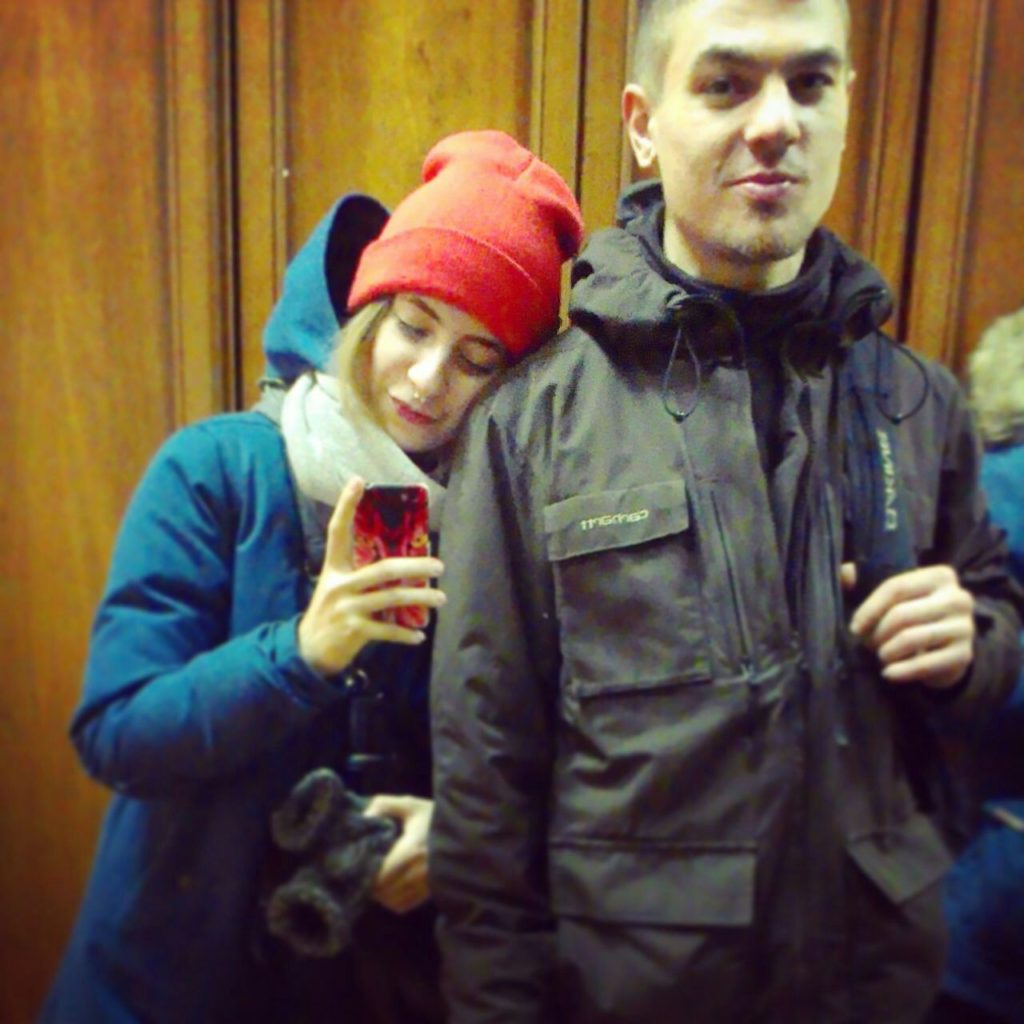
A broad-shouldered FSB guard escorts 25-year-old Dmitry Pchelintsev into the room, not taking his eyes off him the entire hearing. Guards just like him also escort the other detainees. Some of them wear balaclavas to conceal their identities, some wear Buff scarves over their faces. Viktor Filinkov, detained in Petersburg, and Pchelintsev himself recounted how they were tortured by men wearing such masks. Pchelintsev recalled how the officers who tortured him later escorted him to the remand prison.
“When I was tortured with electrical shocks, my mouth was full of ‘crushed teeth’ due to the fact I gritted my teeth since the pain was strong, and I tore the frenulum of my tongue. My mouth was full of blood, and at some point one of my torturers stuck my sock in my mouth,” Pchelintsev told his lawyer in order to explain why he had signed a confession.
Soon, after he was beaten again, Pchelintsev recanted his testimony about being tortured. Pchelintsev, who has thick, kinky eyebrows and slightly protruding ears, worked as a target practice instructor after serving in the army. He wears a checkered shirt whose collar he constantly buttons and unbuttons. Cautious at first, he thaws by the end of the hearing, when he manages to chat with his wife Angelina through the glass of the so-called fish tank in which defendants are held during trials and hearings.
Dmitry laughs, talking about books and Alina Orlova songs. He jokes that during the last hearing he was in handcuffs because “Arman was sitting next to me, and they thought I would attack him.”
“What should I do with your car?” Angelina asks. The FSB claims to have found two grenades under the seat of the old Lada. Pchelintsev said they were planted there.
“Burn it,” says Dmitry, joking once more.
“I’m afraid I’d be arrested.”
“Yeah, you’d also go to jail for terrorism,” Pchelintsev quips. “Actually, I was told we should take it to the junkyard and sell it for scrap.”
Angelina presses her nose against the glass of the fish tank.
Ping, ping, ping, ping, ping, ping, ping.
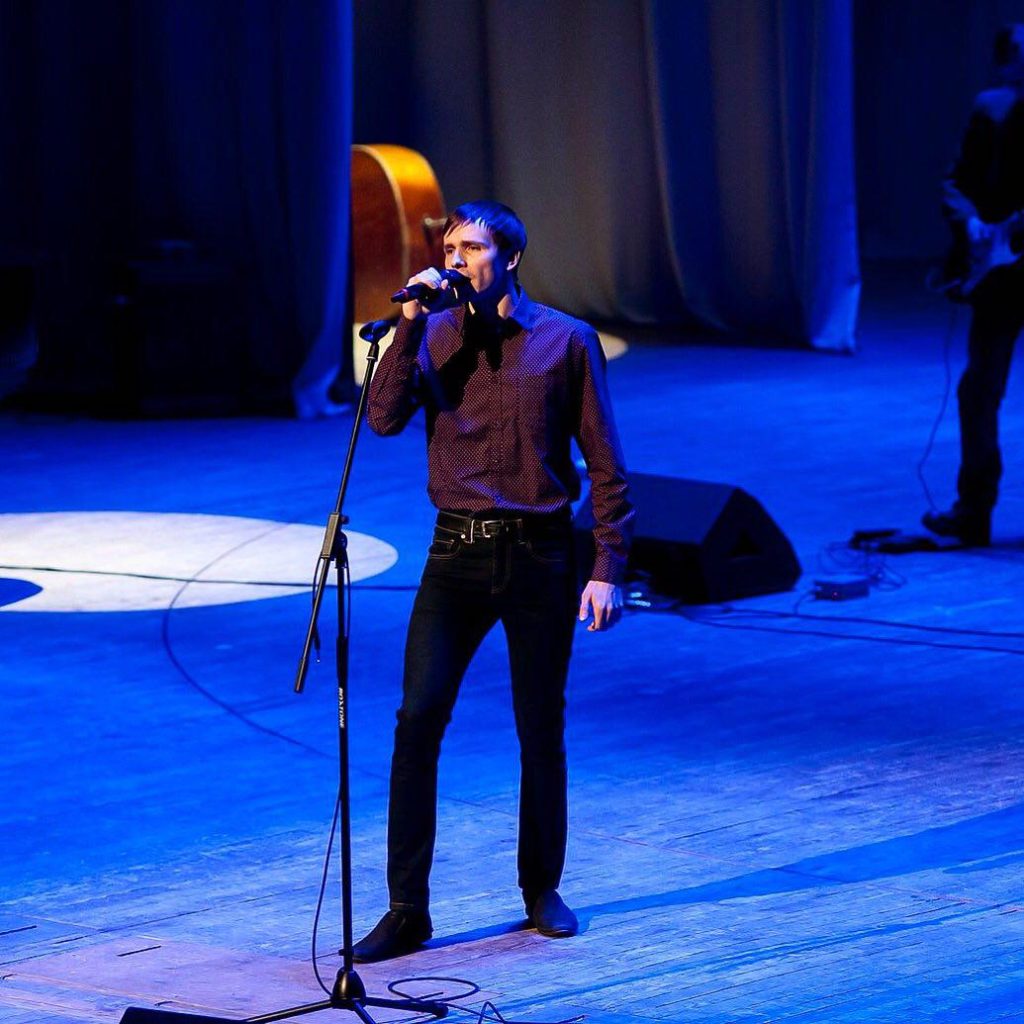
29-year-old design engineer Vasily Kuksov appears to be the most confused and indifferent of all the prisoners. His wife Yelena says Vasily was cheerful and life-affirming prior to his arrest. He enjoyed drawing and was into music, performing a year ago at a Vladimir Vysotsky memorial festival at the Penza Philharmonic. Now his case file describes him as an “individual who leads an isolated lifestyle characterized by antisocial behavior.”
Vasily Kuksov performing at the Penza Philharmonic on January 25, 2017
Kuksov has not complained that FSB officers were violent with him, but his friend Ilya Shakursky recalled that, when they were taken to the FSB building in Penza, first he heard Kuksov’s groan and then later saw him, his face badly mangled. Nevertheless, Kuksov avoided testifying by invoking his right not to incriminate himself under Article 51 of the Russian Constitution.
A pistol was confiscated from his car. According to his loved ones, the gun had been planted there.
Kuksov is the only prisoner whom the investigator allows to talk with his mother for a long time during the recess [sic].
As he listens to the judge’s ruling, Kuksov zips and unzips the zipper of his black winter jacket.
Ping, ping, ping, ping, ping, ping, ping.
“They blindfolded me, tied my hands, and stuck a sock in my mouth. Then I thought they wanted to leave my fingerprints on something, but later they attached wires to my big toes. I felt the first surge of current, and I could not hold back the moaning and shaking. They repeated the procedure until I promised to say what they told me to say. After that, I forgot the word ‘no’ and said everything the officers told me to say,” recalled 21-year-old antifascist Ilya Shakursky.
Shakursky was a classmate of the first person arrested in the case, Yegor Zorin. Both of them were studying to be physics teachers.
Shakursky is a thin young man with a shaved head and a deep wrinkle on his forehead. He is a well-known activist in Penza. He used to be involved with Food Not Bombs, and he was himself always organizing everything from lectures to trips to the woods to pick up trash. Before the antifascist rally held annually on January 19, he sent friends a letter in which he wrote, “If I were on the outside, I would definitely attend the memorial event for two great heroes, Nastya Baburova and Stas Markelov.”
Recently, relations between him and Pchelintsev had been strained. The young men had fallen out over Shakursky’s ex-girlfriend Victoria Frolova. They had fought several days before Shakursky’s arrest. The FSB officers who were staking out the alleged terrorist group were surprised to see two members of the “stable” group brawling.
When the judge reads out the ruling, Shakursky, dressed in a gray track suit, lifts his left eyebrow slightly and folds his hands behind his back.
Shakursky’s mother sobs.
Ping, ping, ping, ping, ping, ping, ping.
When questioning 28-year-old Andrei Chernov’s mother after her son was arrested, the investigator wondered aloud whether she knew he had a secret nickname, Twin.
“He’s had the nickname since he was a kid,” Tatyana Chernova says, recalling her outrage. Next to her is Alexei Chernov, Andrei’s twin brother.
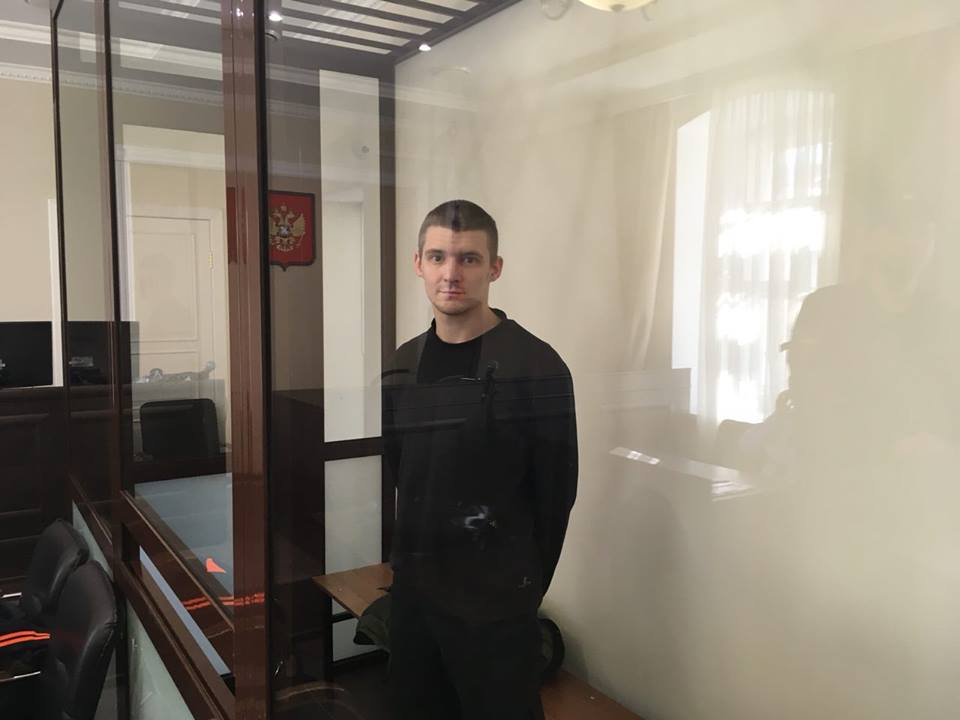
The Chernov brothers studied in the same department at the pedagogical institute as Zorin and Shakursky, but they dropped out before the other young men had enrolled there. Subsequently, Andrei went to work at a factory where he assembled water heaters. He was apprehended on the shop floor.
According to his defense attorney, Stanislav Fomenko, Chernov had not been subjected to violence by the FSB. Tatyana Chernova adds that her son signed a confession after Dmitry Pchelintsev, who had been tortured, spoke with him. Chernov has now recanted his testimony.
Andrei wrote to his mother that after human rights activists spoke out about the plight of the young men and the press published articles about the so-called Penza Case, the guards and wardens at the remand prison often visited his cell to perform spot checks, videotaping everthing he did.
Chernov was finally examined by an ophthalmologist (there were suspicions he had a detached retina). The doctor for some reason prescribed him antibiotics.
Chernov smiles the most of all the defendants. If it were not for the fish tank, it would be impossible to tell him apart from his brother.
“My son is not guilty of anything. Sure, he played airsoft and studied survival skills, but lots of people are into that. I will fight for my son till the end of my days,” says Tatyana Chernova.
Ping, ping, ping, ping, ping, ping, ping.
No one has come to the courtroom [sic] to support 25-year-old Arman Sagynbayev, transferred to Penza from Petersburg,** and yet he is cheerful and talkative.
Arman was born in Novosibirsk, where his mother, stepfather, ex-wife, and their five-year-old daughter still live.
He has spent the last several years in Petersburg, where he was convicted of petty theft (Article 158 Part 1 of the Criminal Code) and sentenced to a fine of 6,000 rubles. When Sagynbayev’s room was searched, the security services allegedly found a bucket of aluminum powder, four kilograms of ammonium nitrate, two alarm clocks, and various radio components.
After his arrest, Sagynbayev fully acknowledged his guilt. He is still cooperating with investigators. He has no objections when Deputy Prosecutor Sergei Oskolkov moved to extend his arrest.
“He has no complaints. He has not claimed he was tortured. He cooperates with the investigators and gets privileges in return for his cooperation. He was now given the chance to speak with his mother. He spoke with her the entire recess [sic]. Arman has a separate cell,” says his lawyer, Rakhmanova [sic].
In the remand prison, her client, who suffers from a serious illness, receives timely medical care, she emphasizes, without specifying what the illness is
At the beginning of the week, Sagynbayev was sent under armed guard to Saratov, where he was examined at the St. Sophia Regional Clinical Psychiatric Hospital. He is the only suspect in the case who has been made to undergo an inpatient forensic examination.
“He said lots of things to our experts about anarchy and social revolution. They said he was deluded and refused to render an opinion, recommending he be hospitalized,” Rakhmanova explains.
According to the attorney, the doctors in Saratov concluded Sagynbayev was mentally competent.
Ping, ping, ping, ping, ping, ping, ping.
* The name of the airsoft team 5.11 had nothing to do with the revolution allegedly scheduled by nationalist Vyacheslav Maltsev for November 5, 2017. According to various sources, the name refers either to a popular brand of tactical clothing and equipment or to the date when seventeen-year-old Penza anarchist Nikolai Pchelintsev was hanged in 1907. Historians Alexander Kolpakidi and Gennady Potapov write that Pchelintsev took the blame for the murder of a gendarme during a shootout, counting on the court’s mercy towards him as a juvenile, but instead was sentenced to death. His burial site in the Abrekov Woods near Penza is marked by a monument to fallen revolutionaries. Mediazona has been unable to ascertain whether Dmitry Pchelintsev is a distant relative of Nikolai Pchelintsev.
If you have found a spelling error, please, notify us by selecting that text and pressing Ctrl+Enter.
This post is also available in: Русский (Russian)
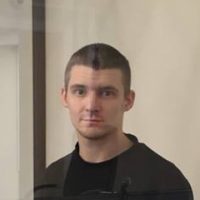
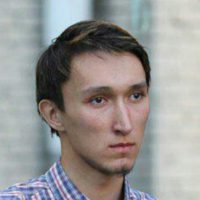
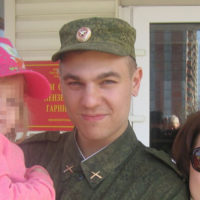

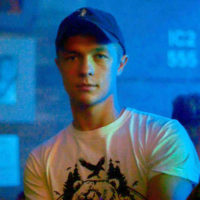

Spelling error report
The following text will be sent to our editors: